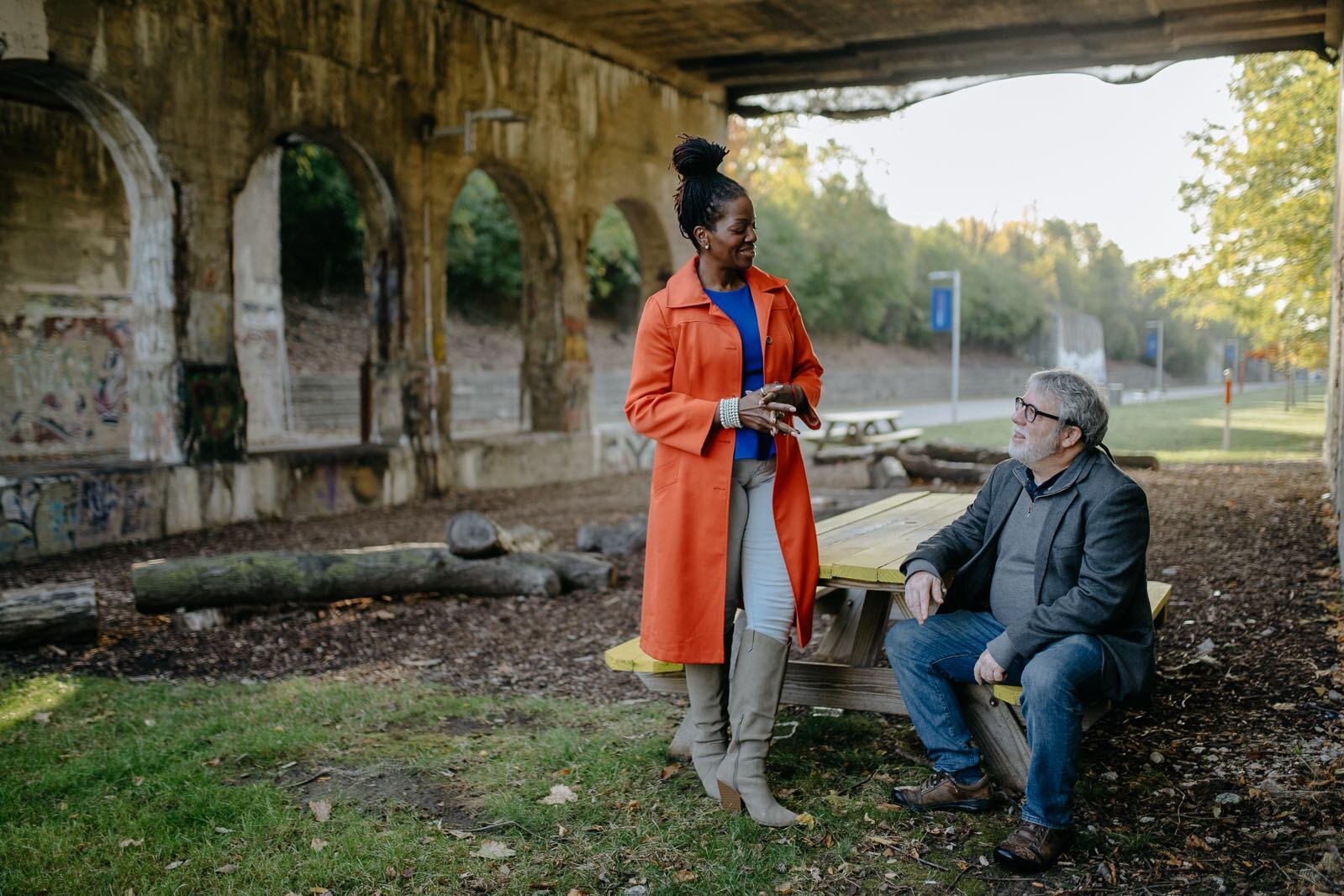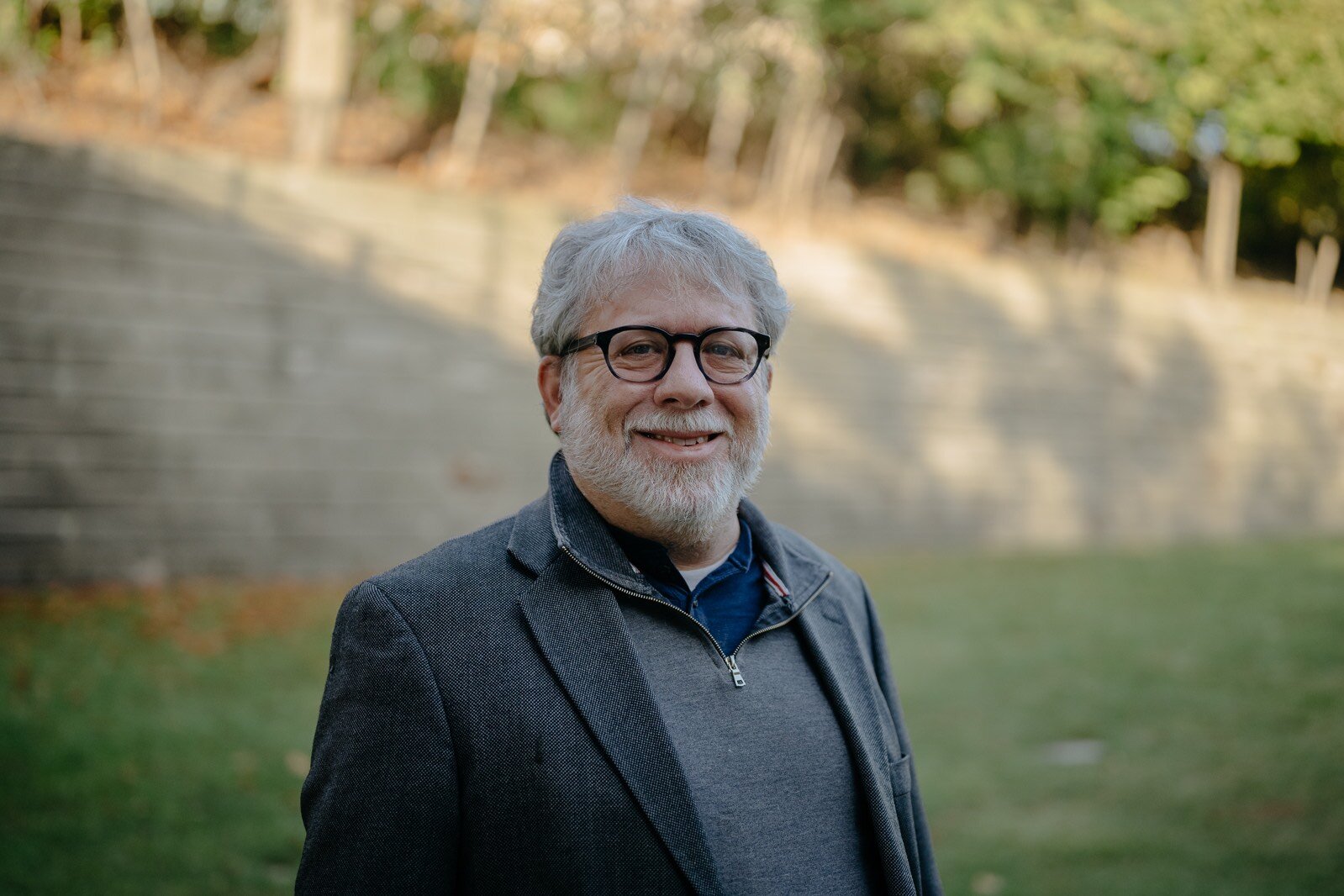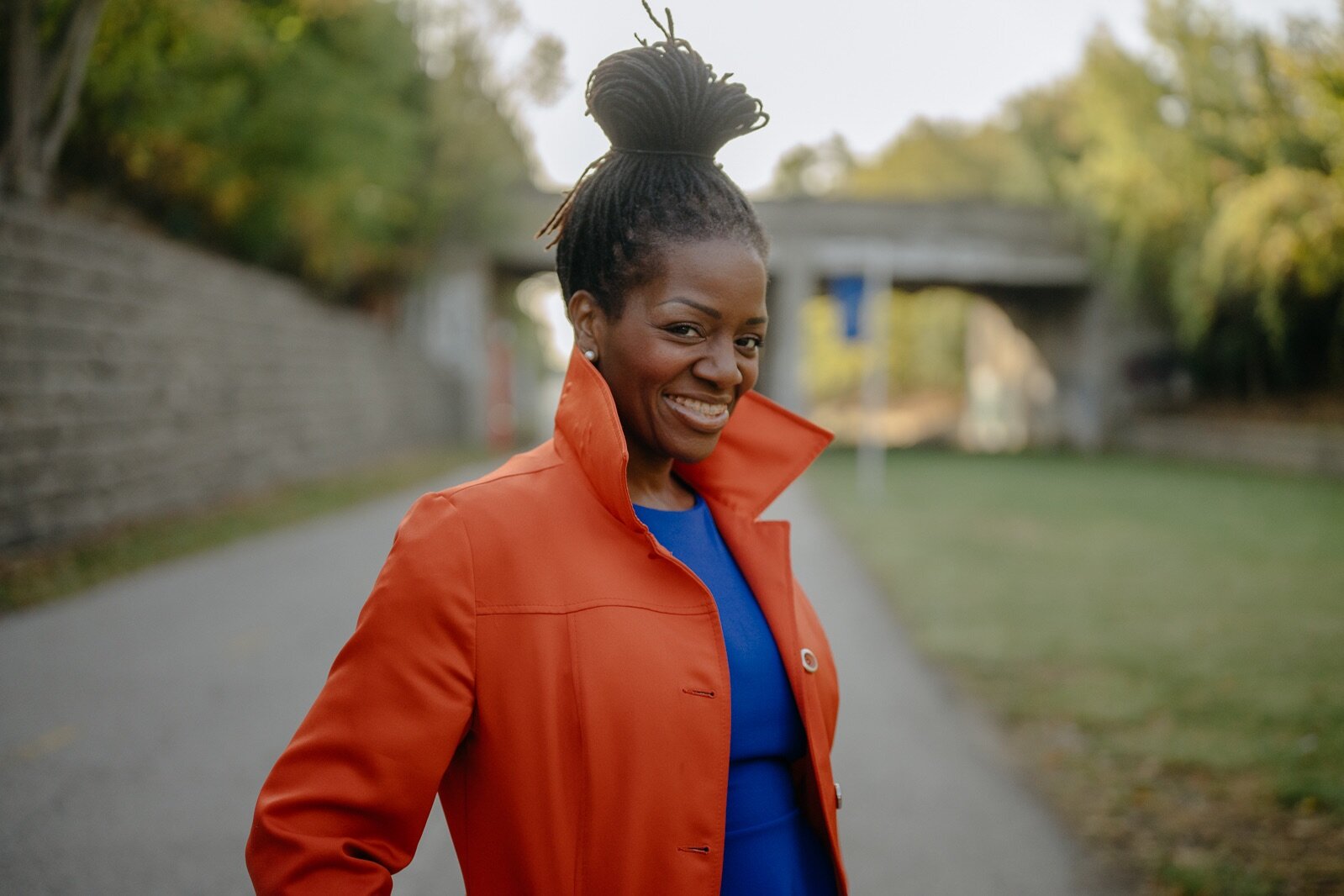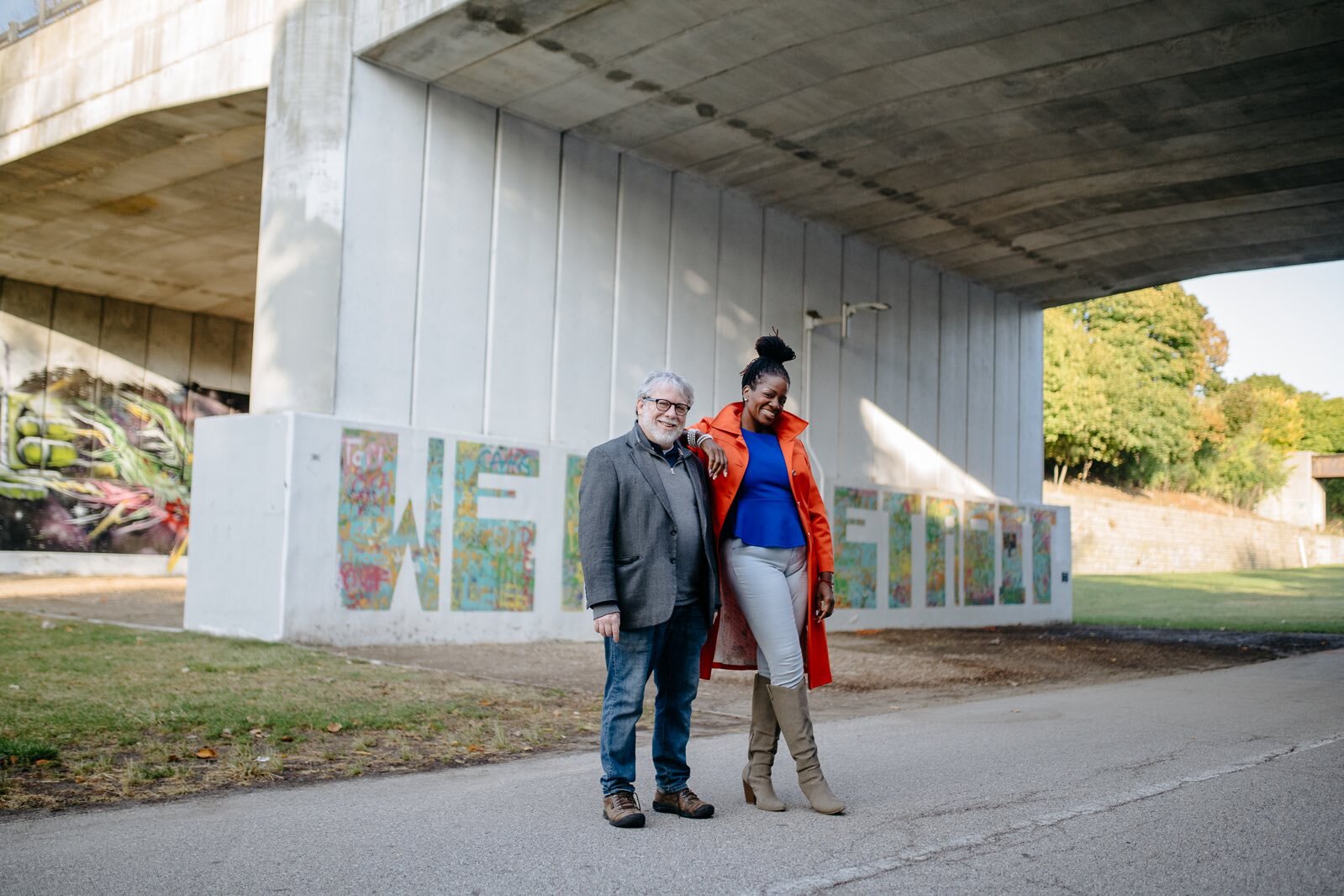Uplifting youth arts organizations through collective impact and connections
Detroit Excellence in Youth Arts levels-up arts opportunities for young artists by breaking down barriers and building up connections for the arts organizations that serve them.
If a youth arts program is launched in the city and no one knows about it, can it make a difference?
The impact of arts programming on the quality of life in Detroit can’t be denied. Detroit enjoys the fruits of many philanthropic entities and individual organizations that bring vibrancy to city spaces.
But for a specific audience – youth, ages 5-18 – arts opportunities are often lost in the shuffle of well-intentioned-but-disconnected groups. This disconnect often leaves precious resources untapped and unshared.
That’s where Detroit Excellence in Youth Arts (DEYA) comes in.
Formed in 2020, DEYA‘s mission is dedicated to catalyzing the collective impact for youth arts in Detroit. It brings together public entities, national foundations, corporations, and private donors to focus efforts, pool funding and solve problems.
DEYA’s mission of intentional connection among and between the arts community began with its own serendipitous connection between two leaders and arts community veterans, Rick Sperling and Nafeesah Symonette.
COMMONALITY IN THE YOUTH ARTS SECTOR
Symonette, DEYA’s executive director, has a background in arts education, with more than a decade in the classroom and at Oakland University teaching arts integration to students. Most recently she served as a gubernatorial appointee to the Michigan Arts and Cultural Council and collaborated with the Michigan Arts Education Instruction and Assessment (MAEIA) Project in the Detroit area.
Sperling, DEYA’s director of strategic initiatives, was the founder and director of the acclaimed Detroit-based Mosaic Youth Theater for more than 20 years. His work continued after Mosaic as a lead arts consultant for Detroit Public Schools Community District (DPSCD) helping the district identify and overcome roadblocks to arts education.
Symonette had written a blog series for MAEIA, addressing inequity, access and engagement with arts and arts education.
“Through that series, Rick found me and that work,” says Symonette. “We connected over a lot of similar ideas about synergy around certified arts education and outside arts.”
Symonette says that youth arts transformed both of their lives, so they found commonality.
“As adults we saw youth education and youth arts as an incredibly impactful thing in our lives and that led us to co-found DEYA,” says Symonette. “Our greatest impact is by working across-sectors as a catalyst to create greater equity.”
Sperling’s consultancy came to an end, but he and Symonette’s connection sparked a collaboration that became DEYA. The pair found an incubation home for their work at Connect Detroit.
“We spent two years as an incubated program,” says Symonette, “and now we are flapping our wings and out on our own.”
BORN IN CRISIS
The kernel of an idea that became DEYA began in the crucible of the 2020 COVID pandemic, while Sperling was a consultant to DPSCD. When the pandemic hit, plans went by the wayside and he and the DPSCD had another mission-critical challenge needed to solve: How to provide remote arts education for 30-40 students at a time in band, theater and visual arts.
Sperling’s proposed individual and small group online lessons. The challenge was raising funds. Sperling decided to reach outside the district and successfully raised $100,000 from individual donors. That momentum made raising funds through foundations and other funding entities more attractive and the number quickly doubled.
Matching funds from DPSCD allowed them to bring in 51 mentors across the artistic spectrum for the pandemic year – including three Detroit Opera Theatre residents mentoring remotely, and even a mentor from Heritage Works from Dakar, Senegal.
“Was it perfect? No. Were there tech limitations? Yes. But it was amazing,” says Sperling. “Some of the things we did we couldn’t have done if it was in-person.”
“The secret sauce was collective impact,” says Sperling. “Because I was a consultant, I wasn’t of the district, I wasn’t of a youth arts provider, I wasn’t a funder, but I knew the funders. Because I was able to be in that space, that was the straw to stir the drink.”
That experience, and the confidence that the challenges faced by youth arts efforts in Detroit could be overcome through connection, became the “aha” moment that led to DEYA’s founding.
One of Sperling and Symonette’s first orders of business was to look at data reflecting the state of youth arts in the city.
They partnered with Data Driven Detroit to map opportunities, equity and access gaps and existing resources in the city. From that, the founders pressure tested and formulated their four key pillars: Catalyzing collective impact networks, developing citywide systems and infrastructure, creating collaborative platforms, and driving advocacy and investment.
In on-the-ground terms, DEYA’s work is found in actions like connecting previously disconnected or siloed funders to arts endeavors; leading efforts to build out-of-school resources and reduce barriers like access to busses and transportation for young artists and their families; creating a centralized database and clearinghouse for arts resources; convening sector-wide conferences, summits and other information-sharing events; and collaborating with and lobbying local, state and national governments and organizations to comprehensively support youth arts.
IN IT, BUT NOT OF IT
To be clear, DEYA is not in the business of programming. Symonette and Sperling stay nimble and keep their staff overhead to the two of them by partnering in strategic ways with other organizations.
“We create platforms where organizations can get the resources to serve important communities,” says Symonette.
One such platform was a Youth Arts Summit convened by Symonette and Sperling in September of 2023.
“It was like the recording of we are the world,” says Sperling. “We had the Detroit-Windsor Dance Academy sitting with Jit Masters Detroit, leaders from the College for Creative Studies sitting with Live Coal, a new arts program focusing on young artists.”
Simply convening the organizations and getting them in the same room was revelatory.
“They were shocked that there were so many people doing the work that they were doing,” says Sperling. “The energy that night was ‘this is real!’ There’s an untapped need to bring these forces together.”
It went so well that DEYA’s future plans include a Youth Arts Congress, which will bring together in a more action-oriented way, youth artists, public schools’ representatives and organizations supporting art opportunities for young people in the city such as Allied Media Project, The Skillman Foundation, MAEIA and many others.
WE HAVE LIFTOFF
In 2023, DEYA’s work took further flight with the “DEYA Launch Awards.”
This collaboration between DEYA and the Detroit Youth Arts Provider Network offers microgrants to young Detroit creatives on a quarterly basis, directly awarding $10,000 every quarter.
The origin of the Launch Awards shows where an organization like DEYA can really make a difference, connecting otherwise disconnected resources.
In early 2023, Gardner White, SEE Eyewear and the Marshall Mathers Foundation partnered with artist Mike Han on a live painting event, capped by an auction of the original work with proceeds earmarked for young entrepreneurs pursing arts careers in Detroit. But Gardner White couldn’t find a home for the donation.
“Gardner White needed to find people to give the money to,” says Symonette.
“They reached out to other entities, and they just weren’t designed for that, and someone said ‘DEYA might be able to help.’ When we got the phone call we thought ‘that’s exactly why money gets passed over,’” says Sperling, “because there’s no receiving entity!”
So DEYA stepped in, designed an application process and established the Launch Awards.
Now, youth artists apply each quarter for up to $250, making a case for their artistic interest. To date, they’ve had more than 200 young artists apply for and receive microgrants.
“We’ve had nail techs, a tattoo artist, awards have covered airfare to New York City,” notes Symonette.
Award ceremonies for recipients have been held at venues like the Detroit centers of U of M and Michigan State University.
“Young artists are excited that this even exists,” says Symonette. “They can always find sports activities, but it’s very rare that they get to engage in the arts.”
A HEALTHY APPROACH TO ARTS
The recent Youth Arts By Prescription pilot program exemplifies DEYA’s catalyst and connection-focused core mission.
Symonette and Sperling cite data showing the benefits of increased exposure to arts experiences for young people in health care settings as an impetus for the program
So, for Youth Arts By Prescription, DEYA partnered with the Children’s Foundation and the Children’s Hospital of Michigan, to pair artists-in-residence with therapists working with children in-hospital.
Centered where health care/wellness and the arts meet, it created a positive impact on youth via art and connected previously unconnected entities.
What’s more it included artists with a deep connection to the health and youth arts cause, and DEYA’s work facilitated the funding and program structure.
“We helped create the structure, facilitated the funding for it,” says Sperling. “What was really exciting was that we brought in musicians Jasmine Rivera and Jon Dixon, two incredible artists.”
It was a cause close to both Dixon and Rivera’s hearts. Electronic music producer and musician Dixon was diagnosed with epilepsy and spent time at Detroit Children’s Hospital.
Rivera, says Sperling, “was 12 years old when doctors told her she wouldn’t live past 17. She joined Mosaic Theater, and now she’s in her 40s. In some way it’s a testament to the idea of arts plus medicine.”
“The fact that Detroit has health care at the table, as a lead, as an early adopter, this is the brave new territory for youth arts,” say Sperling. “This is something where Detroit can lead.”
Symonette and Sperling envision further supporting work that touches both health care and the arts by continuing to look for opportunities to bring together therapists, artists and patients – in and out-of-hospital.
Indeed, notes Symonette, it’s important to extend the benefits by “identifying the passion in young people and giving them an opportunity when they’re out of the hospital to get them involved in the arts,” says Symonette.
“The fact that health care is now at the table with us supporting youth arts equity is huge,” says Sperling.
“What we found nationally is that Detroit is the leader in this now. All these other collective impact initiatives around the country have been wanting to have health care at the table,” he says.
AN ALTOGETHER SUSTAINABLE FUTURE
Remarkably, DEYA recently received a National Endowment of the Arts grant supporting its collective impact work.
This was only possible because of what DEYA is not. It’s not a nonprofit. It does not stage programming. It is not a government entity.
It is, rather, an organization that is at the intersection where these entities come together, for the purpose of helping them connect and strengthen the impact of their work.
Because of that, DEYA is able to lobby on behalf of youth arts in the city.
One example, says Sperling, is lobbying for funding models that have proven successful elsewhere, such as sports and entertainment taxes. Many cities, such as Seattle, fund the kinds of activities DEYA is proposing through such a tax.
The snowball effect of the NEA grant also resulted directly in DEYA being invited to submit for Kennedy Center funding – something no other Detroit arts organization was in a position to do.
What’s next for DEYA? Its primary push is sustainability. As Sperling and Symonette note, Detroit has no shortage of arts organizations, but far fewer last past the initial funding burst and early successes. In staking out a unique territory in the arts ecosystem and staying organizationally small but powerfully impactful, DEYA hopes to leap over longevity hurdles.
It’s not there yet, but DEYA is well underway to organizational sustainability.
“We’ve proven the importance of us being a small and nimble,” says Sperling. “We want to partner with everybody.” And, the organization seems to be doing just that.
Sperling and Symonette’s mentor, Ken Fisher, the retired executive director of University Musical Society sums it up.
“He [Fisher] uses the term ENO: Everybody in, Nobody Out,” says Sperling. “We’ve tried to do it in silos, in competition; the only way we’re going to make Detroit the leader in youth arts to the point that people are moving to Detroit to be part of the youth arts scene, is that we gotta do it together.”
This story is part of our Nonprofit Journal Project, an initiative focused on nonprofit leaders and programs across Metro Detroit. This series is made possible with the generous support of our partners, the Ralph C. Wilson Jr. Foundation, Michigan Nonprofit Association and Co.act Detroit.








